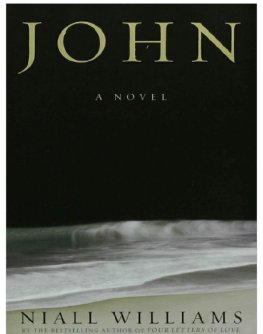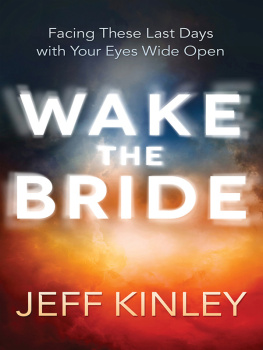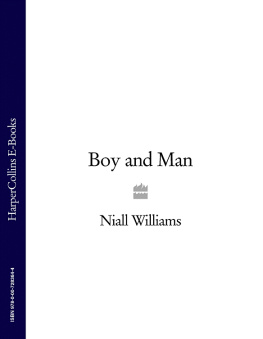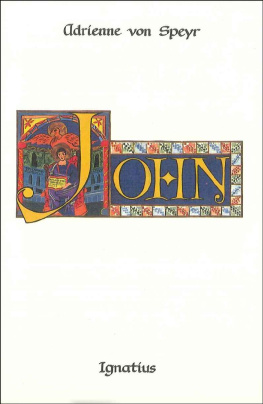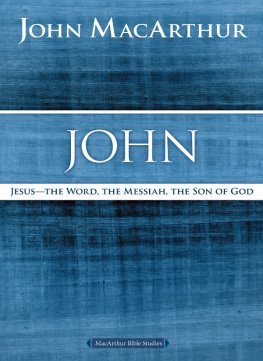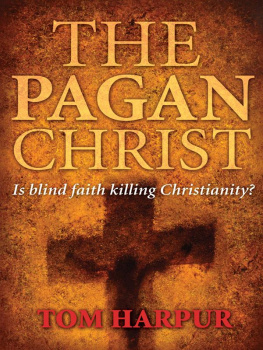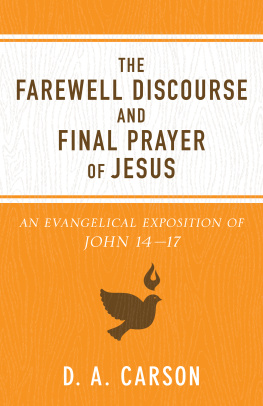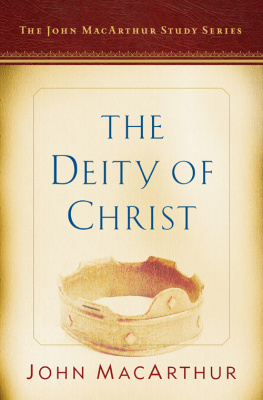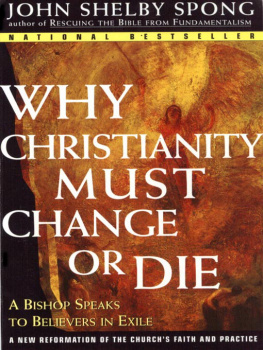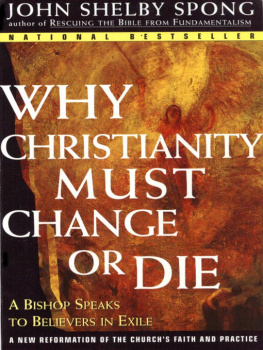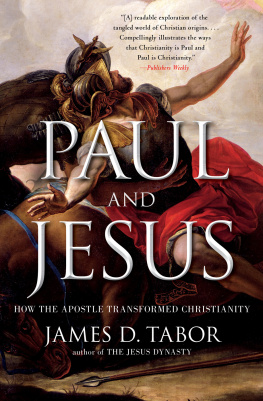To the Memory of
Stephen G. Breen (19552007)
The sun rising, a bell is rung. On the narrow bed inside the cave the old man hears the bell but does not see the light. He has not been sleeping, but lying wakeful in almost a hundred years of memory. In the cool of the cave he rises to sit upright; his feet find the leather sandals. It is another morning. This one is cold. There is a wind from the sea. Storms have been foretold, and it was advised he move from the wooden hut on the hill. They were not wrong, he thinks, the storm is near.
Within the sound of the wind is the slap of sandals on stone. Papias is there. 'Master,' he says.
The old man stands. The youth holds out his arm stiffly, as if it were a rail, and the blind hand alights upon it. Together so, they move out towards the wind.
At the entrance of the cave the man's robe flaps sharply and his long hair blows about. He pauses Papias an instant, as if he can see then the thin crack of light unlidding the darkness in the east, or the pale spread of dawn on the broken surface of the sea. The wind blows at him. His face is long and composed and ancient; his eyes are open but unseeing. The blindness came to him there on the island of Patmos in the second year of his banishment, in the aftermath of vision, now a long time ago. But the things he had seen in the world are not forgotten, and on the rocks above the shore it is as though he views the dawn.
Papias waits. The old man is thin and vulnerable to the wind. His legs are not steady. He is a frail assembly of bones. Waves ride in high and collapse further up the stones. The air is full of the excited noise of the sea, and in standing facing it the old man may lose all sense of time and be returned to the beginning. It is dark still. He steps towards the sound of the waves on the stones, and Papias puts out his arm in case the old man will fall forwards. But he doesn't. He stoops down and feels for the water. He lets its iciness flow about his wrist and then cups a handful and brings it to his face.
'The storm,' he says. 'The storm comes.'
'Yes, Master.'
The bell rings again. They go towards it across the shore. From the darkness other figures appear and move wordlessly in the wind to a place above in the rocks. They are in number near thirty. As light breaks and reveals great heaves of black and purplish cloud rolling in the sky above, the men wait. They watch Papias lead the old man up the rough stones. The one that holds the handbell places it on the ground. Where they stand, exposed, the wind shows them little mercy. It comes at them like a paring knife, as if to test if anything in them not hard and true remains. It whistles and blows. Their robes slap. There is not light enough yet for them to make out one another's faces.
John arrives among them. They look upon him with reverence and greet him with the quiet gladness of those who are afraid each time they see him that it may be the last. Some are young and others old, but none as old as he. He takes their greeting kindly. Then, in that place on the hill, he stands and holds his hands out from his shoulders, parcelling a portion of the half-light and the wind. The men bow their heads. The Apostle's blind eyes gaze forwards into what only he can see. By the rock where once lightning struck and where, with his head pressed against the stone, he had the revelation, he kneels now. The others do likewise, shadows faceless in the half-dark. The wind whirls about them.
They pray.
The storm proper arrives by mid-morning. He is back in the cave and sits on a large stone just inside the entrance. He sees the storm through its sound. He sees the swirl of cloud descending out of the bruised heavens. Darkness contends with the little light and makes nothing of the day. The sea is up and crashing. High swells surface in mid-water and ride imperious to the shore, dragging back rocks that had once been surrendered.
The wind howls. Papias asks his master to move inwards out of the gale. But he will not. He is like a watcher on the deck, attendant, expectant. Salt skins his face, embeds in a thousand wrinkles. He sits, crouched forward as if he might miss something, as if in the contention of earth and sea and air is a message in a language just beyond his understanding.
'My Lord,' Papias hears him say, but nothing more.
The island is sheeted in rain. Vast, urgent thunder rolls across morning. Still John does not move from his place. When the bell rings at midday, Papias asks, 'Master, will you stay and not risk the weather? Will I tell the others to come here?'
'No, I will go.'
And as before, he rises and takes the youth's arm and goes out across the foreshore, where the stones are slippery and treacherous, and up the rock steps to the small gathering. In the wild elements there they pray again. Lightning fingers the sea. Their faith holds them, but they look to the old man in their centre as to a mystery. Some have followed him for years, through Troas, Apollonia, Samaria, other places, desert lands where he came preaching. Whether because of the conviction of his manner or that he spoke of what he himself had witnessed, they left their lives aside like old garments and followed.
Now they stand in the storm bowed and praying. When they have finished, and the rain beats down still, one of them, Matthias, loudly asks, 'Master, tell us, is it a sign?'
He knows he is not to ask. He knows that all have the same question in their minds all the time, but that none utter it. For there is an unspoken understanding that the Apostle does not want to be asked, because for him everything may be a sign; because he was a witness of Christ and because he had the vision on the island years ago, he may see into everything. Or nothing. The vision of the revelation came and went, and there had occurred nothing since. At first the small community of disciples had expected other visions to follow. Even while the words of the revelation were being scribed, they imagined another coming. They looked at the heavens as if they might see evidence of an aperture, a sky portal thrown open and the first fierce angels descending. Every storm, every sudden change in weather might carry meaning. A flock of seabirds, a heavy catch offish, these might be portents. The world became burdened so, and the old Apostle with it. He felt their hungering and grew quiet, like the sea exhausted by storm. In time the disciples understood and did not ask. It was to be a test of their faith. They understood endurance.
But this morning, standing in the storm, rainwater dripping from his black curls, Matthias asks again, more loudly, 'Master, will you tell us, is it a sign?'
The others look up and then look down quickly, as though the blind man can see them. Their faces, their beards, run with rain. The noon is dark, the day ruined, above them the unforgiving sky.
'It is a storm,'John says at last and then steps blindly away down the rocks before Papias, who scrambles after him.
Inside the entrance of the cave the Apostle sits again. Papias brings him a cloth for his face, another he lays on his shoulders. John says nothing. He tilts his face slightly upwards, where the wind meets it, and he sits there, his bones locking, aches of age arriving. He remains wordless, witness of the storm's urgencies, his brow furrowed deeply, as if engaged in an impossible act of translation.
The storm does not lessen. It brews and boils on. The day stays dark. All about the island rain-wind scours. The small community of fishers that live on the eastern shore remain in their homes and wait.
Then, when the short day is falling into night and fresh lightning crackles, the old man stands. At once Papias comes to his side.

